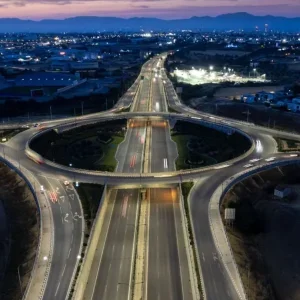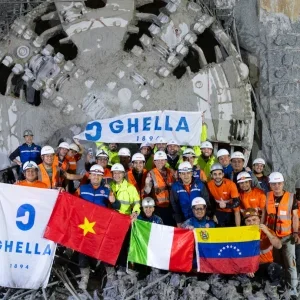On 21 April, the IBT JV broke through its 11.86m diameter Herrenknecht TBM on the first 4.7km long tube of the Islisberg road tunnel in Zürich after averaging high advance rates of 20m per shift throughout the last year.
IBT consists of Marti Tunnelbau AG as lead, with Ed. Züblin AG, NL Tunnelbau and Marti AG Bauunternehmung. The JV launched the TBM a year earlier on 7 April 2004 following contract award in late spring 2003, with general construction work getting underway on-site in mid-2003. Consultancy services are provided by a partnership between Electrowatt AG, Dr. Vollenweider AG, Ernst Winkler + Partner.
The US$458M project, designated Islisbergtunnel N4.1.6 Uetliberg West–Knonau, will close the ring road around Zürich when it is completed and also provides for a direct connection to the canton of Zug. Financed by the Swiss state government and the canton of Zürich; Bruno Gisi, deputy managing director of Marti Tunnelbau AG, told T&TI the civil element of the tunnel works was costed at US$202M.
The scope of works included in this cost is for 4,680m of twin tube tunnel through molasse, excavated by the 11.86m diameter TBM, plus a further 275m of twin tunnel excavated in open cut and two maintenance buildings. The pre-cast concrete segmental lining installed with advance consists of five segments plus one key. A waterproofing PVC membrane is installed and the lining is completed with a concrete tunnel lining.
Gisi explained how the segments were manufactured by Marti Tunnelbau AG at their own pre-cast segment factory at Klus, approximately 100km away from the job site. On a daily basis, 750t of segments were transported to the tunnel by train as a just in time delivery sufficient for 20m of advance. Gisi told T&TI that the high advance rates achieved were the major challenge on the project as the logistics became critical to the success.
Nevertheless, the first tube was driven in 53 weeks on a five-day week basis. As T&TI was going to press, the TBM is being rebuilt ready to start work on the second tube. The entire project is expected to be complete by December 2007.







